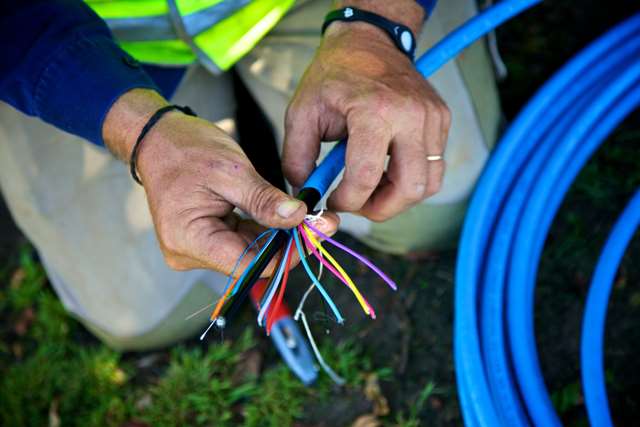The government expects to reap over $1.5 billion in interest from a four-year loan it is providing NBN Co to finish its network rollout.
The mid-year economic and fiscal outlook (MYEFO), released today, shows the government expects around an 8 percent return on the up to $19.5 billion loan to NBN Co.
The government indicated in MYEFO that the loan “includes estimated revenue of $1.574 billion over four years (including $0.325 billion in 2020-21) from the interest paid by NBN Co (based on market conditions applying on 9 November 2016).”
One of the loan conditions is that NBN Co re-finance it “on external markets in 2020-21”.
Most of the expected interest is expected in 2019 and 2020. The government said it expects to see $175m in interest paid in 2017-18, and $462m and almost $612m in the two years following.
The loan had been provided on “terms consistent with NBN Co’s indicative credit rating from ratings agencies”, the government said.
The loan was announced last month, relieving pressure on NBN Co to source funds to complete the construction of its network from private financiers.
The government had capped its equity contribution into the NBN at $29.5 billion, and that money was expected to run dry during the current financial year.
NBN Co had been making preparations to raise funds privately, though it had largely stayed quiet on its progress in securing the required injection.
Communications Minister Mitch Fifield said last month that a “government loan on commercial terms represents the most cost effective way to raise the debt and secure funding to complete the rollout of this important national infrastructure project.”
The Australian Financial Review reported at the time that while not going to market would save NBN Co and the government money – the company would have had to create a borrowing unit – the government loan still raised important questions about the project.
“The fact that NBN has not gone to the market as planned also raises the suspicion that it would have been hard to raise money on truly commercial terms at a reasonable price given the uncertainty around the project,” the report said.
That view was inflamed by the Parliamentary Budget Office (PBO) last week, which raised concerns that NBN Co might not be able to re-finance the loan, forcing the government to extend the terms.
“There is a risk that NBN Co will be unable to refinance this debt in the market at an acceptable rate,” the PBO said.
“If the government decides to extend its loan, and assuming that the interest rate NBN Co is charged is above the Government’s borrowing costs, the net interest receipts from the loan would continue to have a small positive impact on the underlying cash balance for the duration of the extended loan.”
One of the big issues for NBN Co – and the government – is it’s unclear what value the equity contributions to date have created.
The value of that equity is deteriorating, the PBO said, and some commentators believe the government will be forced to sell that equity “at a substantial loss which of course will ultimately be borne by the taxpayer.”
“The final cost of the Commonwealth’s financing of NBN Co will not be known until NBN Co is privatised and the market places a value on the NBN,” the PBO said.
“If the sale price of NBN Co is less than the Commonwealth’s cumulative cost of financing NBN Co, then the NBN would have an enduring cost to the budget.”









